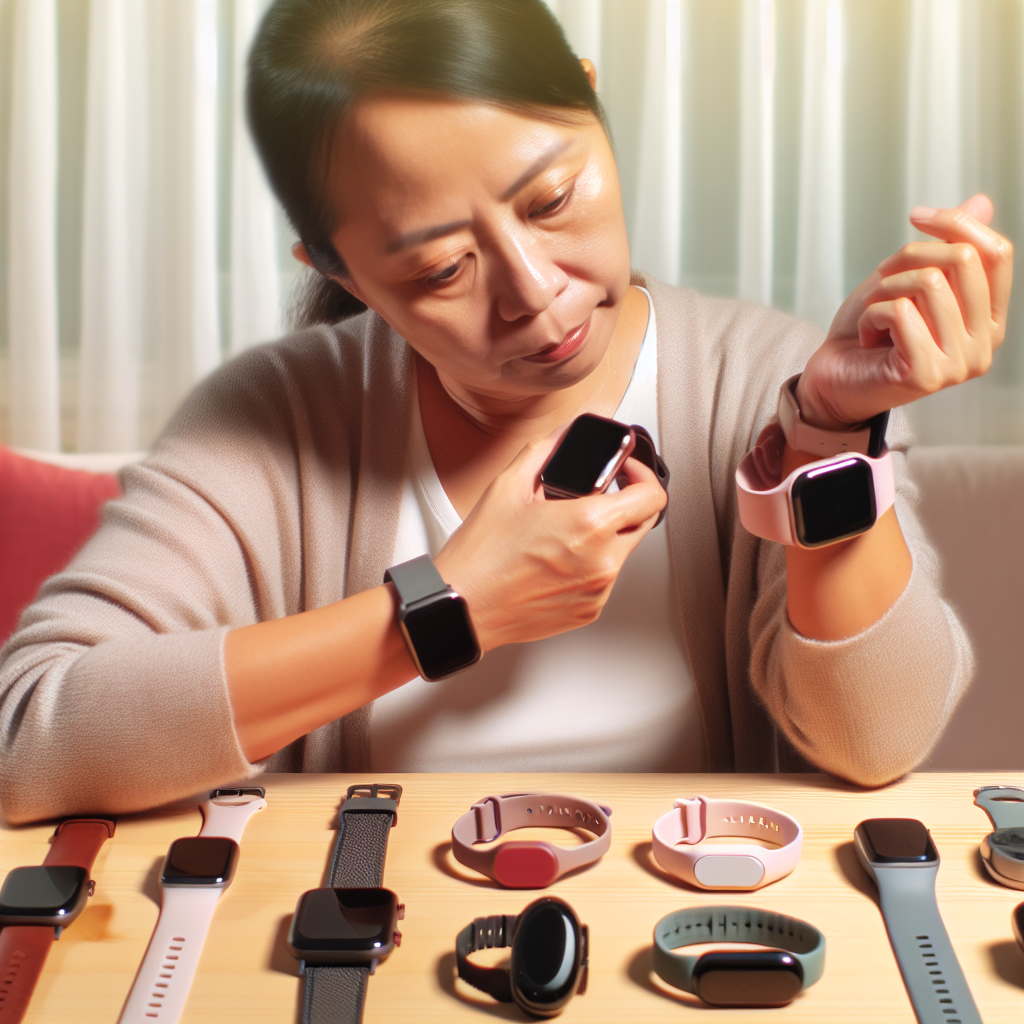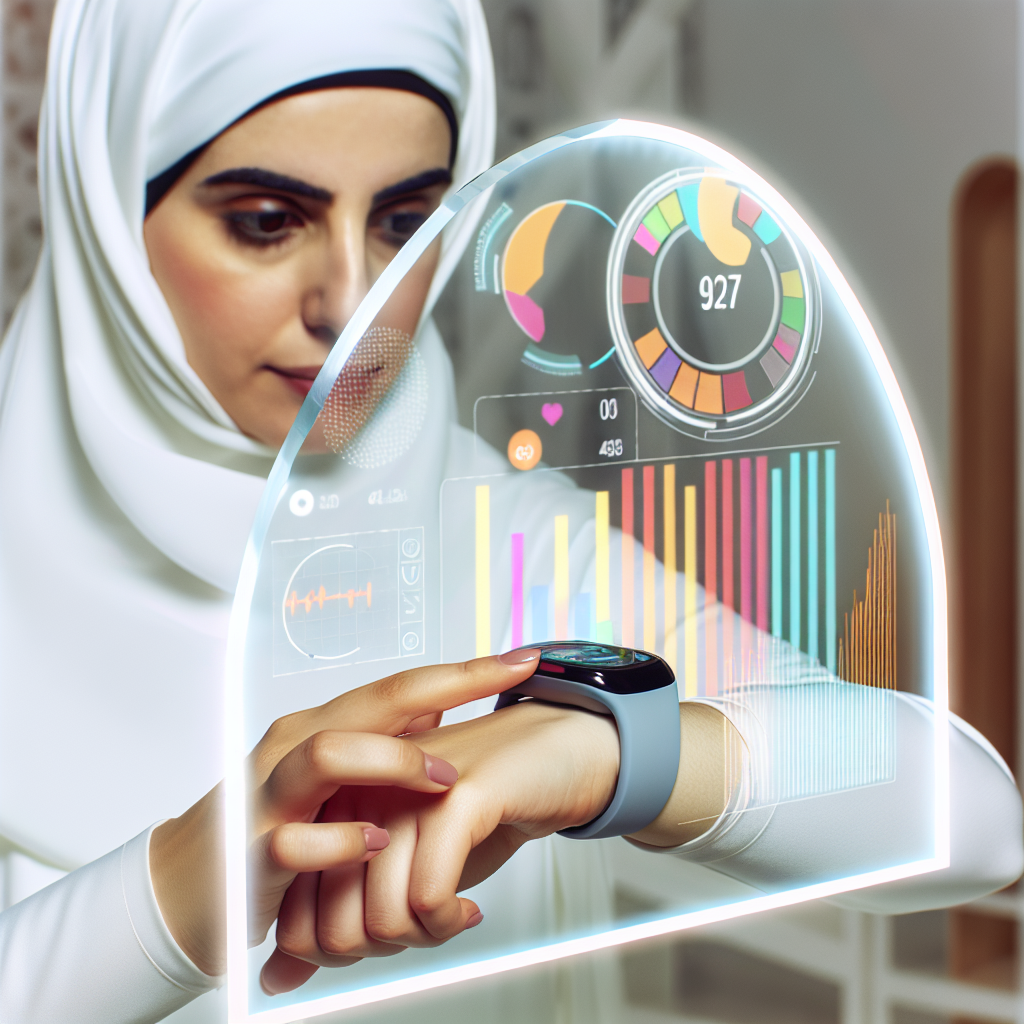Wearable technology like fitness trackers and smartwatches revolutionizes health monitoring by providing real-time access to biometric data. Users can track progress, set goals, and make informed decisions about their health. Choosing the right wearable involves considering health metrics, design, compatibility, battery life, and charging options. The future of wearable technology in health monitoring is promising, with advancements in fitness trackers and smartwatches offering personalized solutions through artificial intelligence and machine learning.
In a world where technology continues to advance at a rapid pace, wearable technology has emerged as a game-changer in the realm of health monitoring. Fitness trackers and smartwatches have revolutionized the way we track our daily activities and monitor our overall well-being. From tracking our steps and heart rate to monitoring our sleep patterns and stress levels, wearable technology has opened up new possibilities for managing our health in a more efficient and proactive manner. In this article, we will explore the rise of wearable technology, the power of biometric data, how to choose the right wearable for your needs, and the exciting innovations on the horizon that could potentially transform everyday life as we know it. Join us as we delve into the world of wearable technology and discover how it is enhancing everyday life and health monitoring for people around the globe.
- 1. The Rise of Wearable Technology: How Fitness Trackers and Smartwatches are Revolutionizing Health Monitoring
- 2. Harnessing the Power of Biometric Data: How Wearable Technology is Transforming Everyday Health Management
- 3. Choosing the Right Wearable: A Guide to Finding the Best Fitness Tracker or Smartwatch for Your Health Monitoring Needs
- 4. The Future of Wearable Technology: Innovations in Health Monitoring and the Potential Impact on Everyday Life
1. The Rise of Wearable Technology: How Fitness Trackers and Smartwatches are Revolutionizing Health Monitoring
![]()
Wearable technology has become increasingly popular in recent years, with fitness trackers and smartwatches leading the way in revolutionizing health monitoring. These devices are equipped with various sensors that can track different biometric data, such as heart rate, sleep patterns, steps taken, and calories burned. This real-time data allows users to gain insights into their overall health and make informed decisions about their lifestyle choices.
Fitness trackers, such as Fitbit and Garmin, are designed to help users stay active and motivated by setting goals and tracking their progress. They can monitor physical activities, such as running, cycling, and swimming, and provide feedback on performance. Smartwatches, like the Apple Watch and Samsung Galaxy Watch, offer even more advanced features, such as ECG monitoring, blood oxygen levels, and stress tracking.
By wearing these devices throughout the day, individuals can monitor their health in a non-intrusive way and make adjustments to their daily routines to improve their overall well-being. This constant monitoring can also help detect any potential health issues early on, leading to timely intervention and prevention.
Overall, the rise of wearable technology has transformed the way we monitor our health and has empowered individuals to take control of their well-being like never before. With the wealth of biometric data at our fingertips, we can make more informed decisions about our health and strive towards a healthier lifestyle.
2. Harnessing the Power of Biometric Data: How Wearable Technology is Transforming Everyday Health Management
![]()
Wearable technology has revolutionized the way we monitor our health on a daily basis. With the rise of fitness trackers and smartwatches, individuals now have access to real-time data about their physical activity, sleep patterns, heart rate, and more. This constant stream of biometric data allows users to track their progress, set goals, and make informed decisions about their health and fitness routines.
By harnessing the power of biometric data, wearable technology is transforming everyday health management. Users can easily monitor their physical activity levels, track their sleep patterns, and even receive alerts about potential health issues. For example, some smartwatches have the ability to detect irregular heart rhythms, allowing users to seek medical attention if necessary.
In addition, wearable technology has the potential to revolutionize the way we approach preventive healthcare. By continuously monitoring key biometric data, individuals can identify patterns and trends that may indicate potential health risks. This proactive approach to health management can lead to earlier detection of health issues and ultimately improve overall health outcomes.
Overall, wearable technology is not only enhancing everyday life by providing convenience and efficiency, but it is also playing a crucial role in transforming the way we monitor and manage our health. As the technology continues to advance, we can expect even more innovative features and capabilities that will further empower individuals to take control of their health and well-being.
3. Choosing the Right Wearable: A Guide to Finding the Best Fitness Tracker or Smartwatch for Your Health Monitoring Needs

When it comes to choosing the right wearable technology for health monitoring, there are a few key factors to consider. Firstly, determine what specific health metrics you are most interested in tracking. Are you looking to monitor your heart rate, steps taken, calories burned, or sleep patterns? Different fitness trackers and smartwatches offer varying features and capabilities, so it's important to prioritize what is most important to you.
Next, consider the design and style of the wearable. Do you prefer a sleek smartwatch that can also make calls and receive notifications, or are you looking for a more discreet fitness tracker that can easily blend in with your everyday attire? The comfort and fit of the wearable are also important factors to consider, as you will likely be wearing it throughout the day.
Another important consideration is the compatibility of the wearable with your existing devices and apps. Make sure that the fitness tracker or smartwatch you choose can sync with your smartphone or other devices to easily access and analyze your biometric data.
Lastly, don't forget to consider the battery life and charging options of the wearable. Some devices may require frequent charging, while others have longer battery life and more convenient charging methods.
Overall, choosing the right wearable for your health monitoring needs requires careful consideration of your preferences, priorities, and lifestyle. By taking the time to research and compare different options, you can find a fitness tracker or smartwatch that best suits your individual needs and goals for health monitoring.
4. The Future of Wearable Technology: Innovations in Health Monitoring and the Potential Impact on Everyday Life

The future of wearable technology holds exciting possibilities for advancements in health monitoring and its impact on everyday life. With the increasing popularity of fitness trackers and smartwatches, more individuals are incorporating wearable devices into their daily routines to track their physical activity, sleep patterns, and overall health metrics.
One of the key innovations in wearable technology is the ability to collect and analyze biometric data in real-time. This data allows users to gain valuable insights into their health status and make informed decisions about their lifestyle choices. For example, wearable devices can monitor heart rate, blood pressure, and even detect early signs of potential health issues.
In the future, we can expect to see even more sophisticated wearable devices that offer personalized health monitoring solutions. These devices may incorporate artificial intelligence and machine learning algorithms to provide actionable recommendations for improving health and wellness. Imagine a future where your smartwatch not only tracks your fitness goals but also reminds you to take breaks, stay hydrated, and even suggests healthier food choices based on your biometric data.
Overall, the future of wearable technology in health monitoring has the potential to revolutionize how we approach healthcare and well-being. By leveraging the power of wearable devices to collect and analyze biometric data, individuals can take proactive steps towards improving their overall health and quality of life. As technology continues to evolve, the possibilities for innovation in health monitoring through wearable devices are truly limitless.
In conclusion, wearable technology such as fitness trackers and smartwatches are revolutionizing health monitoring by providing individuals with valuable biometric data to better manage their everyday health. By choosing the right wearable device, individuals can easily track their fitness goals and monitor their health in real-time. The future of wearable technology holds even more promising innovations in health monitoring, which have the potential to significantly impact everyday life for the better. With the continuous advancements in wearable technology, the possibilities for improving personal health and well-being are endless. So, embrace the power of wearable technology and take control of your health monitoring today.




